Taking Your Travel Business to the Next Level with No-Code Chatbot
Case Studies Conversational Leadership
Apurva Sharma
Published on 27 Feb 2023Highlights

Travel businesses are always on the lookout for new ways to improve their customer service, streamline their operations, and increase their sales. One technology that can help with all of these goals is the chatbot, specifically one that can be used on WhatsApp. Chatbots can provide instant support to customers, handle bookings and reservations, and even offer personalized recommendations based on user preferences.
In this blog post, we’ll explore how travel businesses can take advantage of no-code chatbot platforms to build a WhatsApp chatbot that can help them take their business to the next level. We’ll cover the benefits of using a chatbot, how to choose the right no-code platform, and some tips for building an effective chatbot.
Benefits of Using a Chatbot for Travel Businesses
Before we dive into the specifics of building a WhatsApp chatbot for your travel business, it’s important to understand the benefits of using a chatbot in the first place. Here are just a few of the ways that chatbots can help travel businesses:
- 24/7 Support: Chatbots can provide instant support to customers, no matter what time of day it is. This can help increase customer satisfaction and reduce the workload of your customer support team.
- Bookings and Reservations: A chatbot can handle bookings and reservations for your travel business, allowing customers to quickly and easily book their trips without having to speak with a human representative.
- Personalized Recommendations: Chatbots can use machine learning algorithms to offer personalized recommendations to customers based on their preferences and previous interactions with your business.
- Cost Savings: By automating many of your customer support and sales processes, you can reduce the workload of your staff and save on labor costs.
- Increased Sales: Chatbots can help increase sales by offering personalized recommendations and promotions to customers.
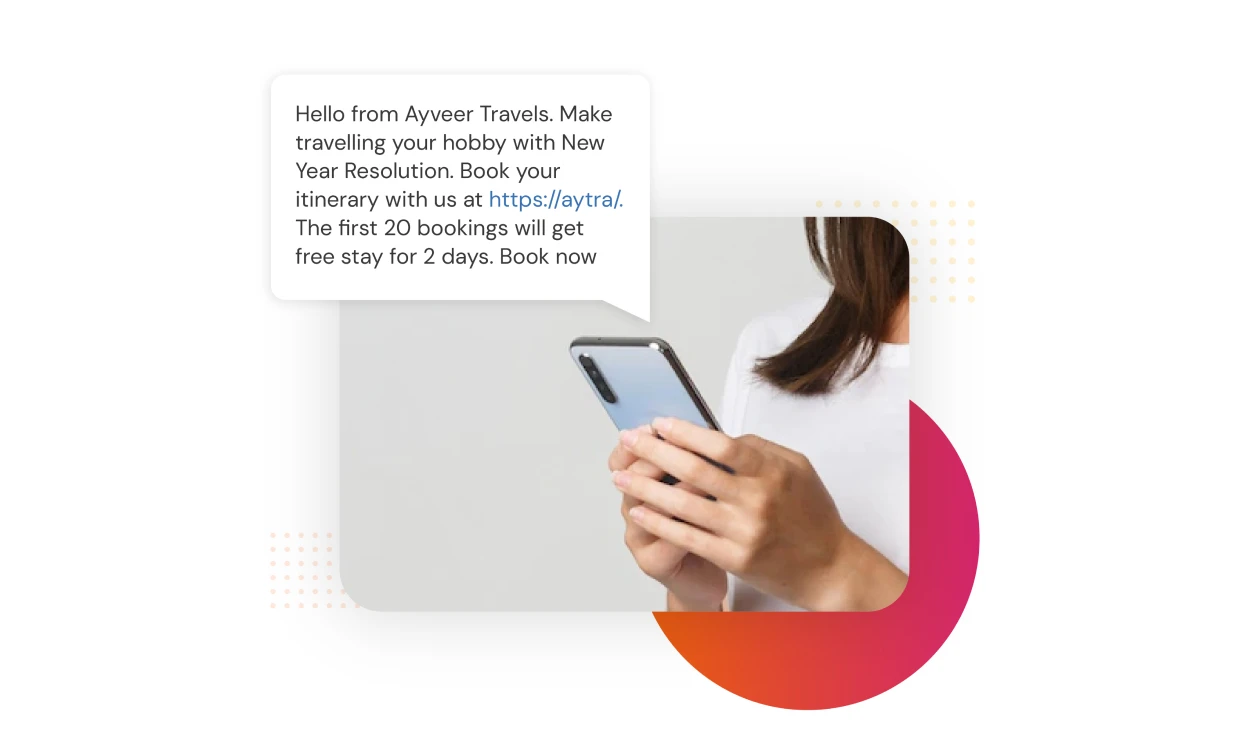
Choosing the Right No-Code Chatbot Platform
Now that you understand the benefits of using a chatbot for your travel business, it’s time to choose the right no-code chatbot platform to build it on. Choosing the best no-code platform to build your chatbot can be a daunting task, as there are many options available. Here are a few things to consider when choosing a platform:
- Ease of Use: Look for a platform that is easy to use and requires no coding experience. This will allow you to quickly and easily build your chatbot without having to hire a developer.
- Integration with WhatsApp: Make sure the platform you choose supports integration with WhatsApp, as this is the platform you’ll be using to communicate with your customers.
- User Interface: Choose a platform with a user-friendly interface that allows you to easily create and modify your chatbot. The platform should provide a visual editor with drag-and-drop functionality that allows you to add or remove elements as needed.
- Features: Look for a platform that offers the features you need to build an effective chatbot, such as natural language processing, machine learning, and integrations with other tools and services.
- Support: Make sure the platform you choose offers good support and documentation, in case you run into any issues while building or using your chatbot.
No-code chatbot platforms can help businesses to build chatbots quickly and easily without the need for coding skills. Some popular no-code chatbot platforms to consider include DashCX, Landbot, Tars, and Botsociety.
Transforming Customer Experiences in Travel Business
The travel industry has undergone a significant transformation in recent years due to technological advancements, changing consumer behavior, and the rise of new business models. As a result, travel businesses need to focus on delivering exceptional customer experiences to stay competitive in the market.
Here are some strategies that can help travel businesses transform customer experiences:
- Personalization: Personalization is key to delivering exceptional customer experiences in the travel industry. By collecting and analyzing customer data, travel businesses can provide personalized recommendations, tailored promotions, and customized travel itineraries. This can help to improve customer satisfaction, loyalty, and repeat business.
- Seamless Booking Experience: The booking experience is critical to customer satisfaction in the travel industry. Travel businesses should focus on providing a seamless and hassle-free booking experience by simplifying the booking process, providing real-time availability, and offering multiple payment options. This can help to reduce cart abandonment rates and increase conversion rates.
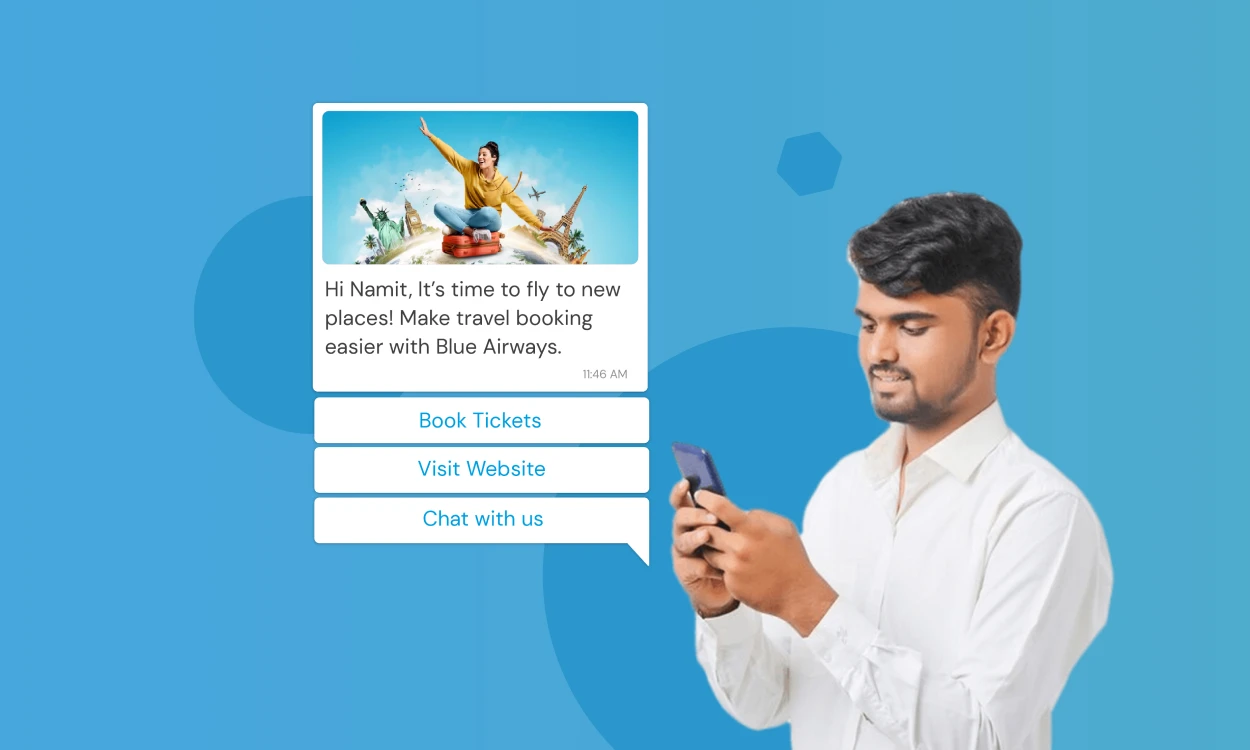
- Mobile Optimization: Mobile optimization is essential in today’s travel industry, as an increasing number of customers are using mobile devices to plan and book their trips. Travel businesses should ensure that their websites, booking engines, and other digital platforms are mobile-friendly and optimized for mobile devices. This can help to improve the customer experience and drive mobile bookings.
- Integration of Emerging Technologies: Emerging technologies such as AI, chatbots, and virtual reality can help travel businesses deliver exceptional customer experiences. AI and chatbots can assist with customer support, provide personalized recommendations, and streamline the booking process. Virtual reality can be used to provide immersive destination experiences and enable customers to visualize their travel itineraries.
- Focus on Customer Service: Customer service is a critical component of delivering exceptional customer experiences in the travel industry. Travel businesses should focus on providing timely and effective customer support through various channels, including phone, email, social media, and chatbots. Providing prompt responses and personalized support can help to enhance the customer experience and improve customer satisfaction.
- Community Building: Community building is an effective strategy for fostering customer loyalty and advocacy in the travel industry. Travel businesses can create online communities where customers can connect with each other, share travel experiences, and provide feedback. This can help to build brand loyalty and drive repeat business.
Delivering exceptional customer experiences is critical to the success of travel businesses in today’s competitive market. By focusing on personalization, seamless booking experiences, mobile optimization, integration of emerging technologies, customer service, and community building, travel businesses can transform customer experiences and stay ahead of the competition.
Tips for Building an Effective Chatbot for Your Travel Business
Once you’ve chosen a no-code chatbot platform, it’s time to start building your chatbot. Here are a few tips to keep in mind:
- Define the Purpose of Your Chatbot: Before building your chatbot, it’s important to define its purpose. What tasks will it be able to perform? What questions will it be able to answer? What information will it be able to provide? Defining the purpose of your chatbot will help you to determine the content and structure of your chatbot.
- Design a User-Friendly Chat Flow: Your chatbot should be user-friendly and easy to navigate. Design a chat flow that is intuitive and logical. This will help customers to find the information they need quickly and easily.
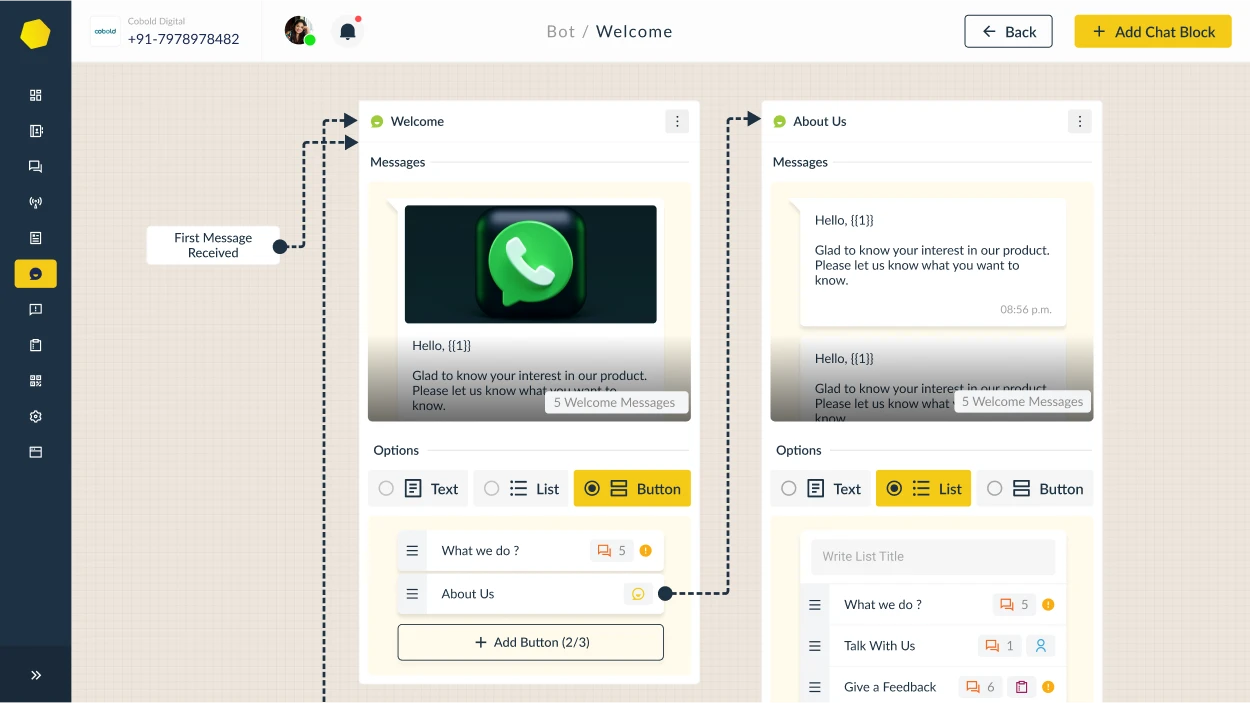
- Use Personalization: Personalization is key to creating a positive customer experience. Use the customer’s name in responses and provide personalized recommendations and suggestions based on their preferences and past behavior.
- Provide Quick and Accurate Responses: Customers expect quick and accurate responses from chatbots. Make sure your chatbot is programmed to provide accurate information and respond quickly to customer inquiries.
- Incorporate Visuals: Incorporating visuals such as images and videos can help to make your chatbot more engaging and informative. This can be particularly useful when providing information about travel destinations or accommodations.
- Offer Multiple Language Support: If your travel business caters to customers from different regions, it’s important to offer support in multiple languages. This can help to improve customer satisfaction and loyalty.
- Include a Menu: Including a menu in your chatbot can make it easier for customers to find the information they need. This can also help to reduce the number of inquiries and improve efficiency.
- Test Your Chatbot: Testing is an essential part of building a chatbot. It’s important to test your chatbot thoroughly to ensure that it is functioning correctly and providing accurate responses. You can test your chatbot by sending it various messages and checking the responses.
- Continuously Improve Your Chatbot: Once your chatbot is launched, it’s important to continuously improve it based on customer feedback and data analytics. This can help to optimize the performance of your chatbot and improve the customer experience.
- Promote Your Chatbot: Promote your chatbot on your website, social media, and other channels. You can also provide customers with a direct link to your chatbot on WhatsApp. This can help to increase the adoption and usage of your chatbot.
Use-Cases of Chatbots for Travel Business
There are many use cases of WhatsApp chatbots for the travel business. Some of the most common use cases include
- Customer Support: A WhatsApp chatbot can be used to provide customer support for travel-related queries, such as flight bookings, hotel reservations, and travel itineraries. This can help to reduce the workload of customer support agents and improve the customer experience.
- Booking Assistance: A WhatsApp chatbot can assist customers with the booking process by providing real-time flight and hotel availability, pricing information, and payment options. This can help to simplify the booking process and increase conversion rates.
- Travel Recommendations: A WhatsApp chatbot can provide customers with personalized travel recommendations based on their preferences and budget. This can include recommendations for destinations, activities, and accommodations.
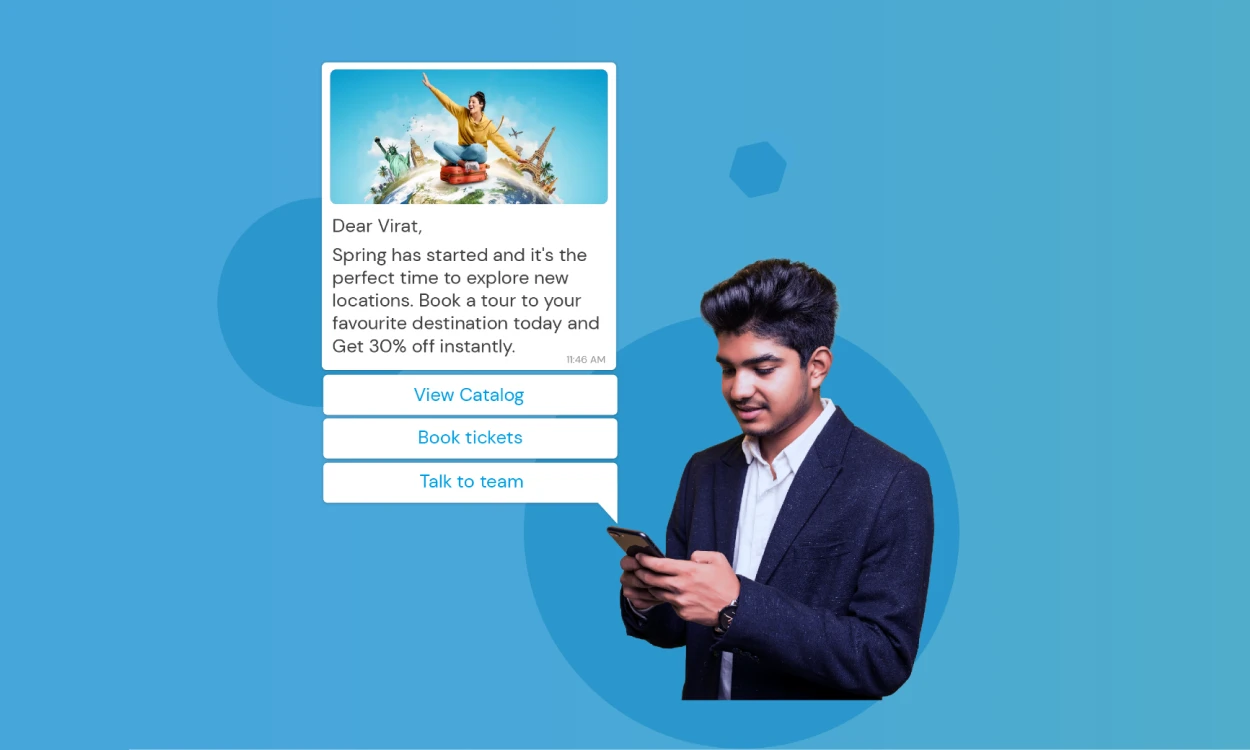
- Travel Alerts: A WhatsApp chatbot can be used to send customers to travel alerts, such as flight delays or cancellations, and provide information on alternative travel options. This can help to keep customers informed and reduce the impact of travel disruptions.
- Travel Updates: A WhatsApp chatbot can provide customers with real-time updates on travel-related information, such as weather conditions, traffic congestion, and visa requirements. This can help to ensure that customers are prepared for their trip and have a seamless travel experience.
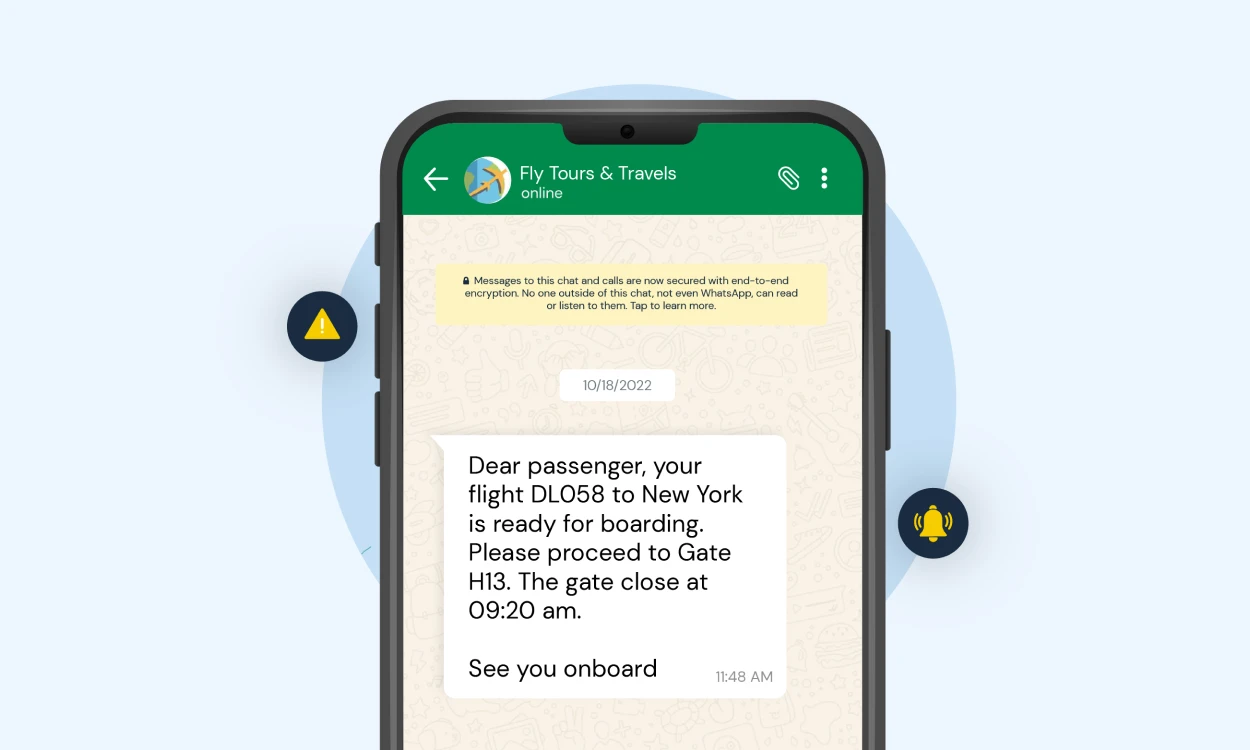
- Feedback and Reviews: A WhatsApp chatbot can be used to collect feedback and reviews from customers after their trip. This can help travel businesses improve their services and offerings based on customer feedback.
- Destination Guides: A WhatsApp chatbot can provide customers with comprehensive destination guides, including information on local attractions, restaurants, and cultural events. This can help to enhance the customer experience and encourage repeat business.
- Loyalty Programs: A WhatsApp chatbot can be used to manage loyalty programs and rewards for frequent travelers. This can help to incentivize repeat business and improve customer retention.
Overall, a WhatsApp chatbot can be a powerful tool for travel businesses to enhance the customer experience, increase efficiency, and drive revenue. By using a WhatsApp chatbot, businesses can enhance the customer experience, reduce response times, save time and resources, and build customer loyalty. With the growing popularity of messaging apps and the increasing demand for personalized customer service, implementing a WhatsApp chatbot can be a smart investment for businesses in the travel industry.
Create your no-code chatbot right away with DashCX!
In conclusion, creating a no-code chatbot for your travel business on WhatsApp can provide numerous benefits, including improved customer experience, increased efficiency, and increased revenue. With the right tools and strategies, you can design and launch an effective chatbot that meets the needs of your customers and enhances your business operations.
DashCX is one such platform that can help you build and deploy a no-code chatbot quickly and easily. Optimize customer experience by creating custom chat blocks to manage a high volume of conversations. Your marketing automation chat flow should be personal and adaptable to the interests and behaviors of your customers.
Provide a user-friendly journey from the moment they contact your business to the moment they reach their destinations and even post-travel. Depending on your needs, you can set up a sales bot to handle sales inquiries, a marketing bot to announce offers and discounts, and a lead generation bot.
You can send and receive sensitive information such as invoices, payment links, passport copies, and proof of age documents. Spread travel deals at the best prices by sharing customized amazing holiday packages on WhatsApp. Boost faster payments by allowing customers to drive direct bookings.
By following the tips outlined in this blog, you can create a chatbot that is user-friendly, personalized, and effective in delivering the information and services your customers need. So why wait?
Make your WhatsApp conversations faster, automatic, and more effective with your team.
Recent Blogs

25-08-2023
Streamlining Bulk Messaging: A Guide to Utilizing WhatsApp Cloud API & DashCX in South Africa
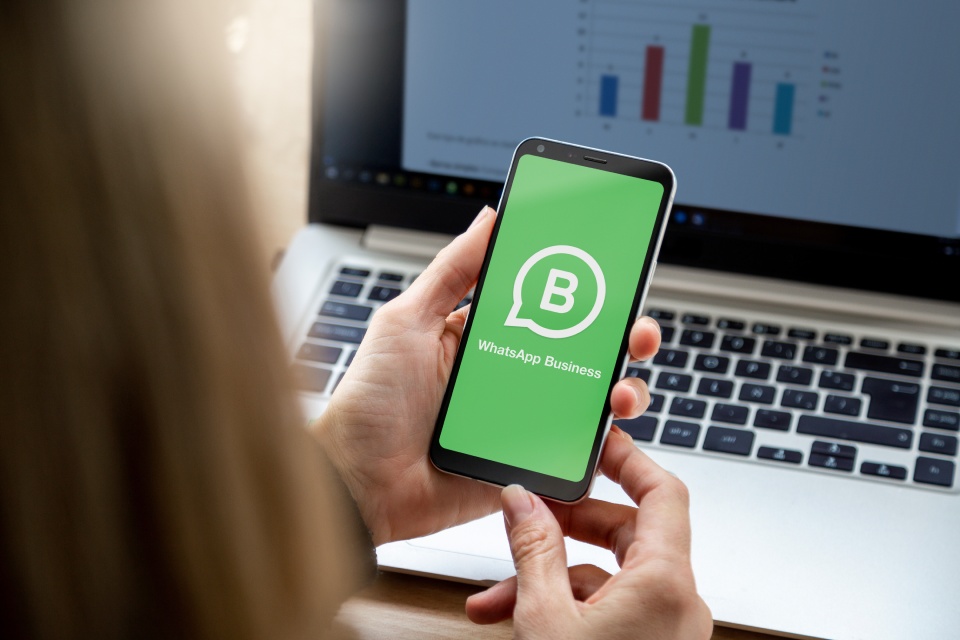
25-08-2023
Unified Messaging Made Easy: Utilizing WhatsApp Cloud API & DashCX Mobile App for Seamless Communication in South Africa

25-08-2023
Elevating Business Growth: Harnessing the Potential of WhatsApp Cloud API with DashCX for South African Entrepreneurs

30-03-2023
How to Create an Effective Lead Generation Campaign on WhatsApp
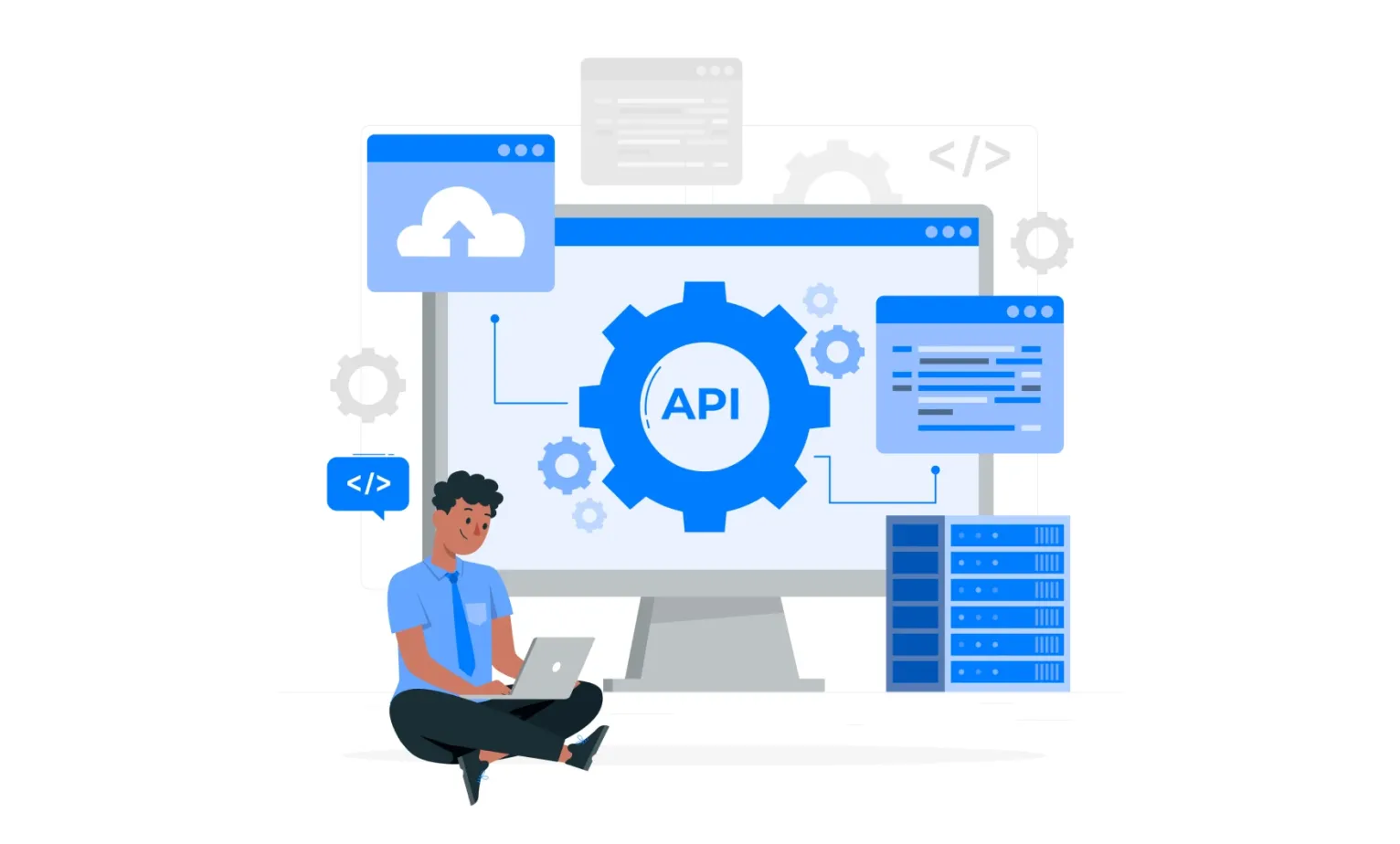
28-03-2023
What are the best WhatsApp Business API Providers? Find Out Now!

22-03-2023
How Stock broker companies use WhatsApp API to give insights into the portfolio to their ‘Customers’
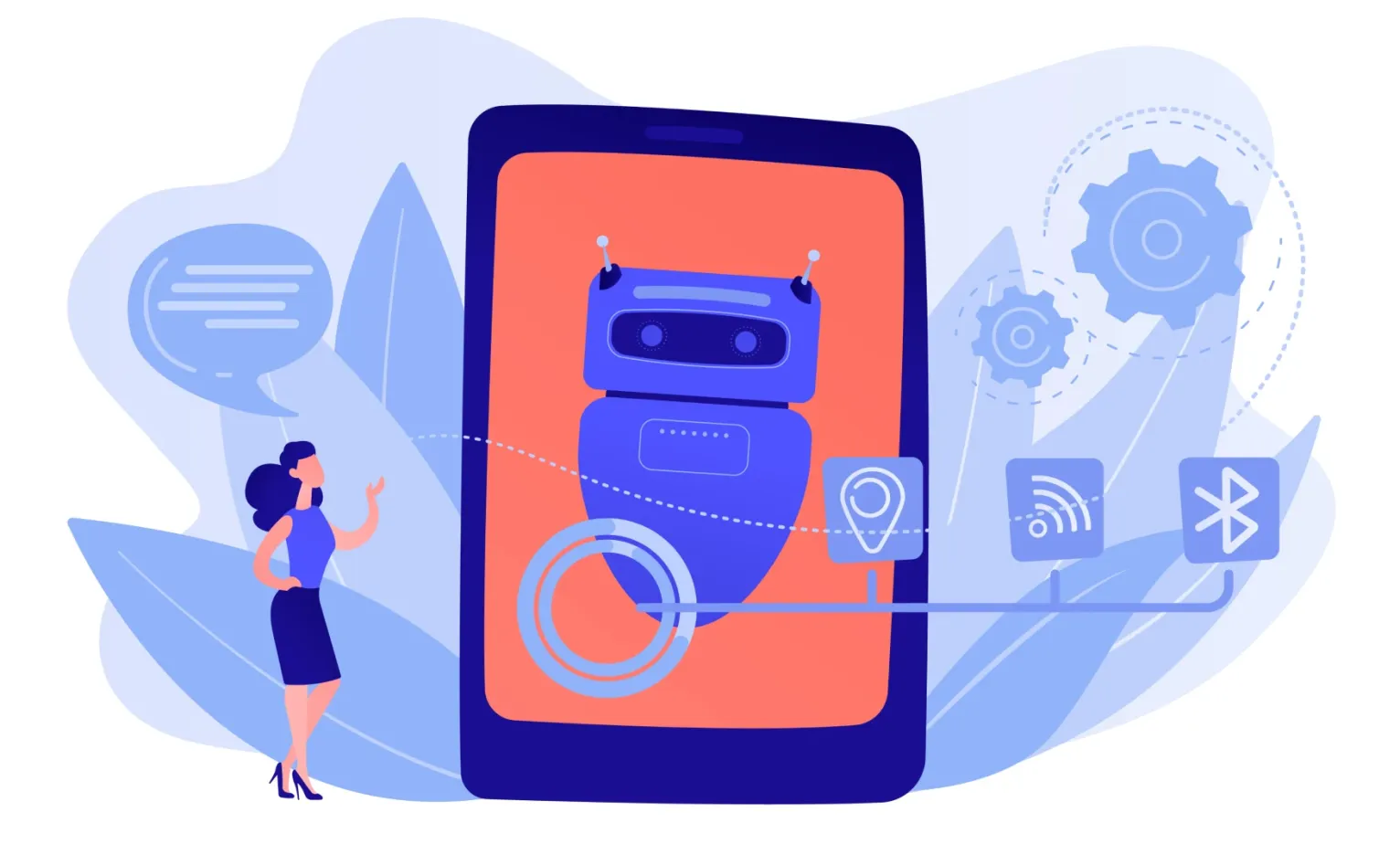
19-03-2023
Impact of Automation in WhatsApp API Across Industries: A Closer Look

13-03-2023
How can the manufacturing sector leverage automation in WhatsApp Business API to help achieve their business goals

10-03-2023